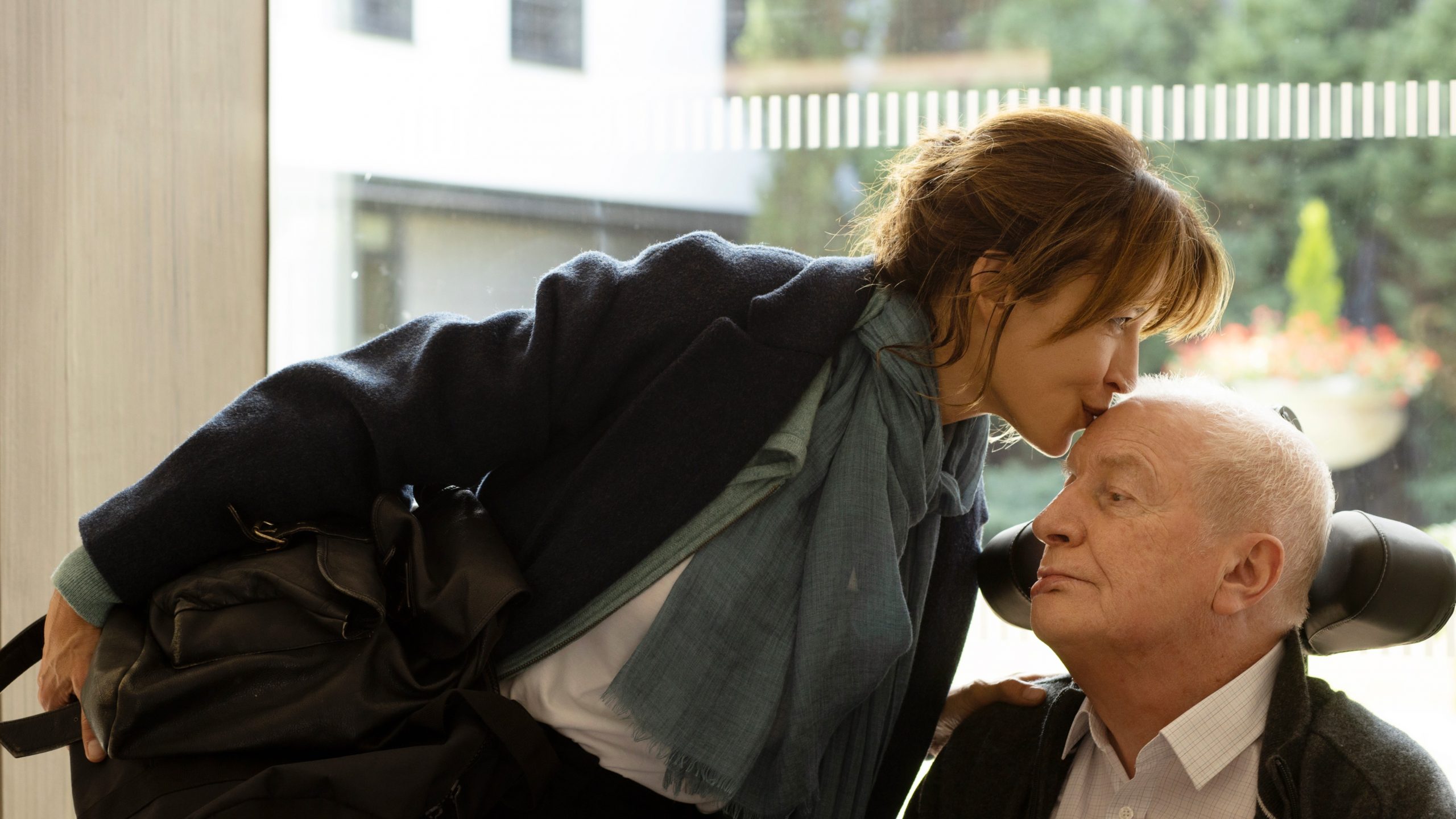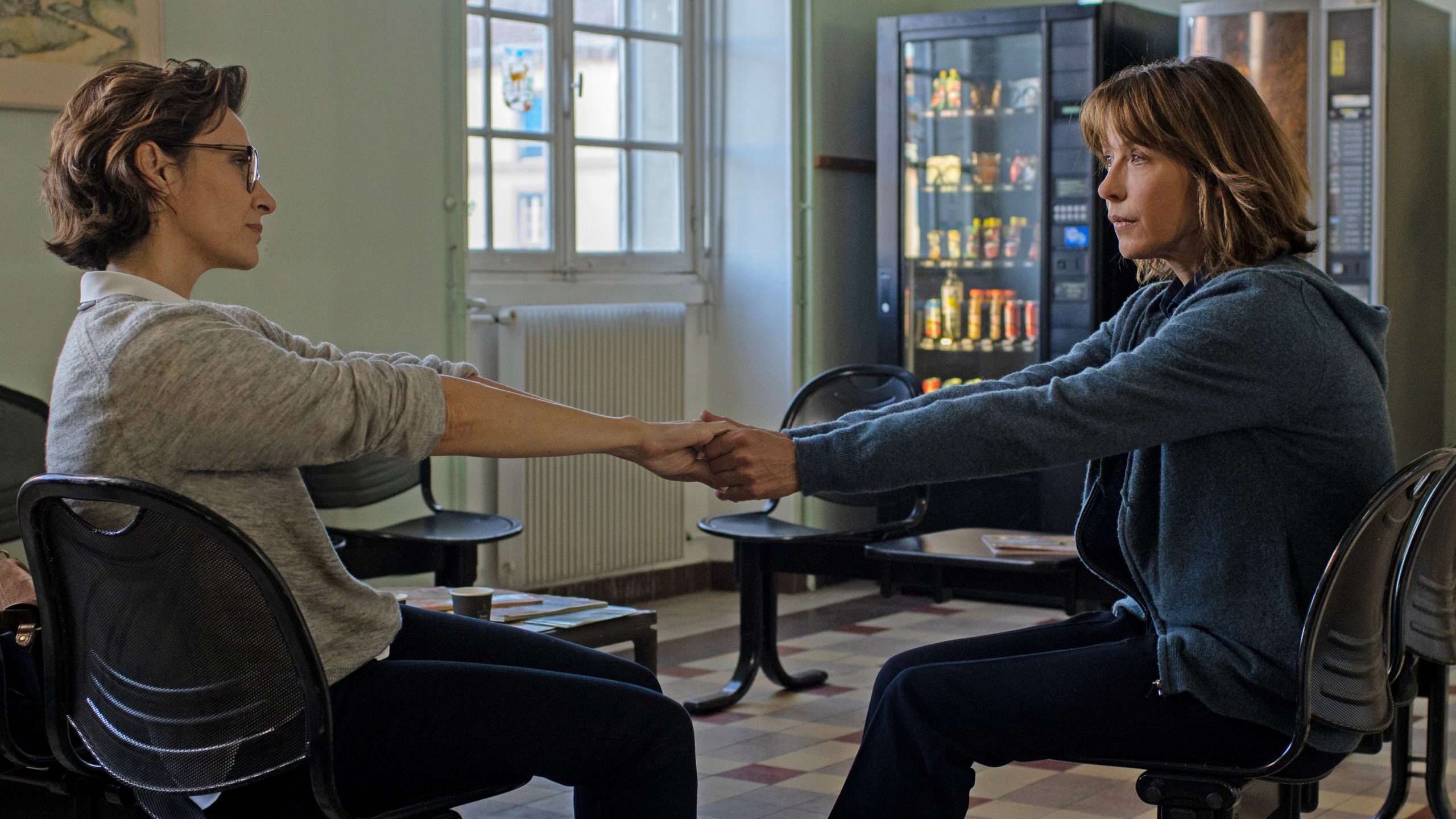
★★★★☆
François Ozon, one of France’s most prolific directors, returns with an adaptation of a collaborator’s book.
Sophie Marceau plays Emmanuèle Bernheim who’s father André (André Dussollier) suffers a devastating stroke. He requests Emmanuèle to help him “end it,” but assisted suicide is not legal in France, so Emmanuèle is forced to contact a clinic in Switzerland instead.
What follows is a story that is as sad as it is deeply warm. Ozon tells the story of Emmanuèle with humour and humanity. Everything Went Fine is based on the real Emmanuèle Bernheim’s book; Bernheim was a collaborator of Ozon’s on films such as Swimming Pool and 5×2. She died of cancer in 2017, but Marceau brings her to life on screen, creating a complex and nuanced look at a woman who’s being asked the impossible.
Everything Went Fine is an unfussy film. Yes, it’s sad and there may be tears by the end, but it never attempts to manipulate your feelings in order to forcefully get those tears out. It lays out the facts, even the ones that don’t always seemingly support André’s extreme decision to end his life; he’s not capable of the things he used to be and although there is some quality of life, it’s not the same quality and André rejects a life half-lived.

To die with dignity is such a privilege and Ozon makes sure to focus on that. It costs the family €10,000 to allow André the death he longs for. André questions how the poor manage, to which Emmanuèle replies “They wait for death.” It’s a scene that’s both a bit morbid, but funny too. It’s those small injections of humour that make Everything Went Fine so authentic and life-like in its portrayal of family relationships during such a distressful time.
Marceau is compelling, but Dussollier is the heart of the film. He’s often unlikable, refusing to water the spirited André down to just a victim or a poorly elderly gentleman, longing for the sweet release of death. Instead, this is a rude, unkind man who simply wishes to go on his own terms.
Assisted suicide remains a controversial topic and is still illegal in many countries. Ozon’s film explores the often murky ethics of it. André is shown to get progressively better throughout the film, regaining some of his mobility and strength, yet he remains unwavering in his desire to die. Is it still ethical to grant him his wish, even though there is still some quality of life left? Should it be a personal choice to determine when and how you die?
Ozon doesn’t necessarily answer any of these questions, but simply offers a gentle look into one family’s story. Although Everything Went Fine feels like an inherently political film, it never comes across as a statement, nor does Ozon seemingly attempt to sway us in any preconceived opinions.

Ozon also delicately – sometimes too delicately – handles the subject of André’s sexuality. He married the stoic Claude (Charlotte Rampling) despite having relationships with men as well, rendering Claude bitter. She, also, is ill and depressed and despite Rampling’s compelling performance in such a small role, Claude remains a mystery to the audience.
Everything Went Fine is a gorgeous slice of cinema. Understated, but powerful, this French drama carefully and gently navigates its themes. Ozon never reduces the film to just politics or shock value nor does he seek to polarise audiences. It asks for your empathy as a viewer and if you’re able to grant André some, you’ll be handsomely rewarded. Bring tissues.
Everything Went Fine is in cinemas June 17.




